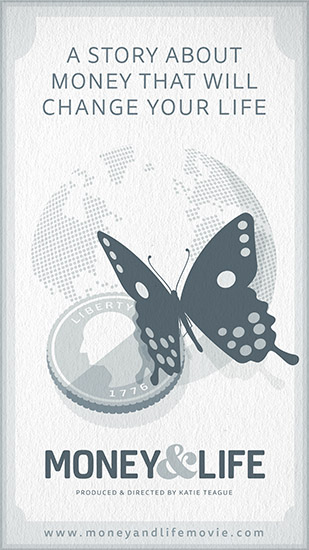 Book: Bill McKibben, Deep Economy: The Wealth of Communities and the Durable Future
Book: Bill McKibben, Deep Economy: The Wealth of Communities and the Durable Future
Publication date: 2007
Publisher: Henry Holt, New York, NY
We should slap ourselves for saying money isn’t everything when it may bloody well be everything for the Chinese worker caring for an ailing parent, the Congolese mother whose children are starving, or the penniless American needing a heart transplant.
Until these persons’ incomes hit a level at which basic needs and a few luxuries fall within reach, more money will indeed equal more happiness. Beyond that level–and this is key–money does not increase the quality of life.
Another title for this book might be: More is Better, But Only Up to a Point. Deep Economy is a skilfully wrought challenge to that throng of power-wielding Greenspan dittos who sweep aside demands for tax increases and better social security on the grounds that such measures would place limits on economic growth, limits tantamount to economic suicide. As McKibben makes clear, unlimited growth has become a very, very bad thing for all concerned, and the sooner we slow down this wildly listing hay wagon the better.
When I first saw Shumacher’s book Small is Beautiful: Economics as if People Mattered, I did a double take. What? You mean economics doesn’t recognize that people are important? I was soon to discover that indeed it does not. A healthy economy is a growing economy and that’s that. It’s all about the numbers. Economic growth has brought us gains for which we must be grateful. But untrammelled economic growth is only good up to a point. Beyond that point it destroys the environment, creates poverty, and worse: for all its costs economic growth does not bring happiness, not even to its beneficiaries.
The current materialistic excess of Americans alone is sucking the earth’s udder dry and emerging economies like India and China are now hell-bent on achieving the same pace of consumption. If America continues to use up as much stuff as it does right now and the Indians and Chinese come close to catching up, the toll on natural resources will be several times what the planet can produce. This taxing of the environment will of course wipe us out, if the pollution created doesn’t off us first.
I could go on and on about how bad things are, but the gist of this book is ever so much cheerier than that. Not only is there a way out, but a growing worldwide army is now actively engaged in carrying out the slow, laborious changes necessary for the survival of the human race. Local, community-supported agriculture, radio, music, currency, schools, politics, urban gardens, and transportation are all adding a vital dimension to economic growth, deepening it, if you will.
What is needed to ?deepen? the economy? Community, community, community. Communities provide myriad sources of wealth that is sustainable and stable and which brings joy and personal growth to our lives. The greatest thing about farmers’ markets, for example, is not that you can buy fresh, local, organic produce and even sell some yourself, but that people actually spend a lot more time talking to each other at farmers’ markets than they do at the huge supermarket chains. The crowning wealth of communities is human connectedness. But it isn’t enough to simply believe in community; you have to put your wallet behind it, because the building (and destroying) of communities is dependent on how we choose to spend our money.
Convention would have us believe that we creative types do much better as solitaries labouring in our ivory towers or in rooms of our own, but history and experience show us the folly, for people of imagination, of isolationism, of its tendency to lead to depression, substance abuse, and a fatal abdication of the artist’s responsibility to society. McKibben refers us to ancient Greek city states and Italian Renaissance communities wherein arts and ideas flourished because people were interdependent and in frequent communion with each other.
Stop saying, ?I know I should, but . . .? The world McKibben reports on and recommends isn’t perfect, and it does mean consuming less. But it is rich in health, happiness, ecological balance, creative problem-solving, closeness to nature, and freedom of intellectual exploration. What are you waiting for?

